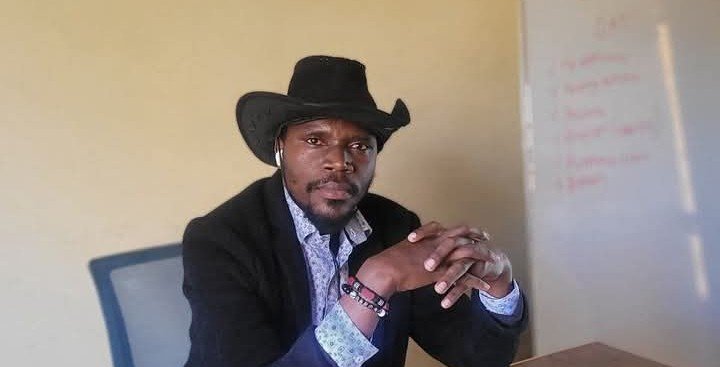By M. Mutabazi Mugisha, Linguist|Educator|Academic Leader|Advocate|Strategist|Humanitarian
mugmartino@gmail.com
Category: Restorative Linguistics
Paradigm : The Negro-African Linguistic Heritage Paradigm, School: The African School of Linguistics| _The African School of Linguistics Papers_
Cite this Article as: Mugisha M. M. (2025) _UBUNTUCRACY as the Fitting Governance Model for Africa and the World: The African Moral and Civic Compass_ The African School of Linguistics Papers, July 26, 2025
__________________
This article is a scholarly synthesis of an ongoing civic-intellectual dialogue on the GPN (Global Pan-African Network) platform. It emerges from a reflective and strategic exchange between African thinkers committed to reclaiming epistemic justice through indigenous concepts of governance and moral orientation . The spark came from an article shared by Gertrude, advocating for “Ubuntu”, humanness , as the foundational principle to restructure leadership through what she referred to as “people-ism.” Her reflections ignited a rich conversation about moral frameworks, civic dignity, and ancestral ethics in political practice.
Within this dialogue, I coined the term Ubuntucracy , (an indigenous governance model rooted not in Western ideologies but in the lived philosophy of humanness as practiced in African communities ). As the discussions deepened, Gertrude expanded the framing by introducing the profound expression from Buganda, Obuntu Bulamu, which translates to “Ubuntu is Life.” This reframing transformed the initial idea from a political motto into a cosmological lens for reinterpreting humanity and society . “Obuntu Bulamu” is not merely the soul of Ubuntucracy, it is its breath, its rhythm, its metaphysical heartbeat.
Ubuntucracy, therefore, does not propose a new ideology but a re-membered political consciousness that restores ancient African frameworks and harmonizes them with contemporary civic needs . It draws its pulse from linguistic evidence across the Great Lakes region and resonates with spiritual, psychological, and ethical traditions lived through generations of the Bafuliiru, the Barundi, the Banyarwanda, the Baganda, all other Bantu-speaking peoples and Africa at large.
Ubuntucracy: A Restorative Framework of Leadership
Ubuntucracy emerges as a model that displaces transactional governance systems such as liberal democracy, authoritarianism, communism, and reorients leadership around the sanctity of life (Ubulamu) and relational dignity.
Western models, though impactful in their historical contexts, center ideas like contractual citizenship, competitive representation, and material accumulation at the expense of humanness. Ubuntucracy centers Obulamu (beingness, life itself, coherence, and moral sanity) .
Where democracy may defend rights, Ubuntucracy defends being. Where communism may collectivize ownership, Ubuntucracy reclaims communal care. Where capitalism may valorize individual success, Ubuntucracy affirms interdependent flourishing.
Ubuntucracy is not passive. It is deeply political, rooted in indigenous cosmic and justice systems, communal deliberation processes, linguistic diplomacy, and the metaphysics of societal restoration. It offers Africa and the world an alternative that:
1. Rejects bureaucratic alienation and reinstates ethical closeness.
2. Moves beyond electoral majoritarianism to consensus-driven moral leadership.
3. Considers power not as force for suppression, manipulation and unworthy wealth accumulation but as presence in community to promote life and collective humanness, service, and truth-telling.
Moreover, its philosophical rigor is supported by proto-bantu linguistic insights across regions. The root _ntu – (Ntr, ndu, tu, etc.) from mu-ntu, mu-ndu , mu-tu , ki-ntu, ki-ndu, ki-tu, represents more than a noun-forming morphology. It is a proto-bantu root that encodes the essence of life: the primordial energy of being that dwells in all life.
The evolution into Ubuntucracy and Obuntu Bulamu embodies _moral existence, vibrations of life channelled into governance, ethics, policies, systems, mourning, greetings, storytelling, and dispute resolution.
In ancient Buganda, for instance, as it was rightly put by Gertrude, Obuntu Bulamu was not a theoretical posture, it was the civic climate. It infused hospitality, leadership, architecture, the ethics of death and the choreography of daily interaction. *Ubuntucracy* dares to translate that breath into laws, political system, institutions, and global advocacy.
Ubuntu as Life: The Ancestral Cosmolocal interpretation in the heart of the political Great Lakes
What Obuntu Bulamu proposes is the existential amplification of Ubuntu . If “I am because we are” (a com Southern African interpretation version of Ubuntu) humanizes society, then “Obuntu bulamu: Ubuntu is life” reflects its original ancestral cosmological interpretation across the political great lakes region ( Eastern DRC, Burundi, Rwanda, and Uganda).
Ubuntu , in this deeper framing, becomes:
1. Life itself
2. A moral state of mind and heart.
3. A civic spirituality.
4. An ethical and societal operating system.
5. A philosophical treaty between humanity and the cosmos.
In the philosophies of the Banyarwanda, the Baganda, the Bafuliiru, the Barundi, the Bashi, and other groups in the heart of the great lakes, Ubuntu is no not just a collective ethic, it is a cosmological condition . And within it, governance must reflect not just the will of the people but the moral weather of life itself (Obulamu).
https://www.facebook.com/share/p/1D2eKA7yso/
The African School of Linguistics








